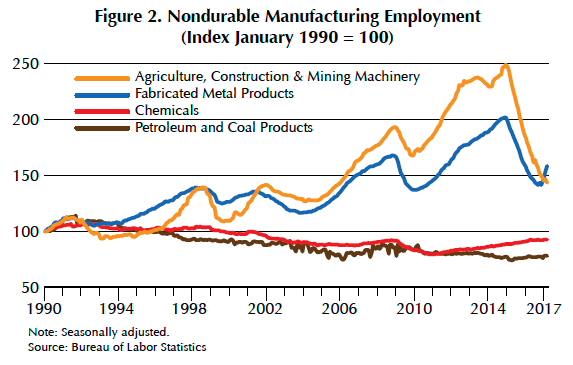Well-Oiled Machine

You might also like

TG Magazine
Check out the latest issue of our flagship publication.
Helping Texans make the best real estate decisions since 1971.
As the state’s population grows, so does the need for more housing. Here are the data and tools you need to keep up with housing market trends in your area.
Whether you’re talking about DFW’s financial services industry, Austin’s tech sector, Houston’s energy corridor, or the medical hub that is San Antonio, commercial real estate is big business in Texas.
Mineral rights. Water issues. Wildlife management and conservation. Eminent domain. The number of factors driving Texas land markets is as big as the state itself. Here’s information that can help.
Texas is a large, diversified state boasting one of the biggest economies in the world. Our reports and articles help you understand why.
Center research is fueled by accurate, high-quality, up-to-date data acquired from such sources as Texas MLSs, the U.S. Bureau of Labor Statistics, and the U.S. Census Bureau. Data and reports included here are free.
Stay current on the latest happenings around the Center and the state with our news releases, NewsTalk Texas online searchable news database, and more.
We offer a number of educational opportunities throughout the year, including our popular Outlook for Texas Land Markets conference. Check here for updates.
Established in 1971, the Texas Real Estate Research Center is the nation’s largest publicly funded organization devoted to real estate research. Learn more about our history here and meet our team.


Manufacturing jobs have dwindled nationwide, but one Texas metro saves endangered jobs. Houston supplies equipment and hardware for Texas’ energy sector, keeping area manufacturing jobs healthier than in other locations. |
The United States has consistently lost manufacturing jobs since reaching a peak in the late 1970s. Job levels have not recovered from the losses during each recession since the 1990s (Figure 1). Losses accelerated after the 2001 recession and again when China entered the World Trade Organization, opening itself up for trade and commerce with the rest of the world.
Texas manufacturing employment followed this same track, although it did recover from the 1990–91 recession. The 2001 recession caused jobs to fall below the previous peak, and they did not recover after this recession (Figure 1). The same trend can be observed in most regions in Texas, including Austin, Dallas-Fort Worth, and San Antonio, which lost jobs.
But not all manufacturing situations are the same. Houston manufacturing jobs currently exceed their 1990s levels. They recovered and expanded after each recession. These contrary moves make Houston as rare as a male white rhinoceros (Figure 1).

So why is Houston’s manufacturing employment history different? The answer is because it supplies the oil and gas industry with machinery and equipment (Figure 2). The cluster of upstream and downstream energy firms creates a manufacturing base to supply the full spectrum of the energy industry. Moreover, proximity makes it difficult for foreign imports to compete against local manufacturers.

Fracking played an essential role in boosting Houston manufacturing jobs. At the beginning of 2014, before the fall in oil prices, jobs were more plentiful than before the Great Recession. Currently, jobs have surpassed 1990 levels, which cannot be said for the U.S. or Texas as a whole.
The question now is will Houston manufacturing employment fully rebound after the 2014 oil bust? This will depend on oil prices, of course. And manufacturers will need to go forward with new technologies that require fewer workers but allow more machinery and other products to be manufactured.
____________________
Dr. Torres ([email protected]) is a research economist with the Real Estate Center at Texas A&M University.
Receive our economic and housing reports and newsletters for free.
As the state’s population grows, so does the need for more housing. Here are the data and tools you need to keep up with housing market trends in your area.
Whether you’re talking about DFW’s financial services industry, Austin’s tech sector, Houston’s energy corridor, or the medical hub that is San Antonio, commercial real estate is big business in Texas.
Mineral rights. Water issues. Wildlife management and conservation. Eminent domain. The number of factors driving Texas land markets is as big as the state itself. Here’s information that can help.
Texas is a large, diversified state boasting one of the biggest economies in the world. Our reports and articles help you understand why.
Center research is fueled by accurate, high-quality, up-to-date data acquired from such sources as Texas MLSs, the U.S. Bureau of Labor Statistics, and the U.S. Census Bureau. Data and reports included here are free.
Stay current on the latest happenings around the Center and the state with our news releases, NewsTalk Texas online searchable news database, and more.
We offer a number of educational opportunities throughout the year, including our popular Outlook for Texas Land Markets conference. Check here for updates.
Established in 1971, the Texas Real Estate Research Center is the nation’s largest publicly funded organization devoted to real estate research. Learn more about our history here and meet our team.
Helping Texans make the best real estate decisions since 1971.
You are now being directed to an external page. Please note that we are not responsible for the content or security of the linked website.